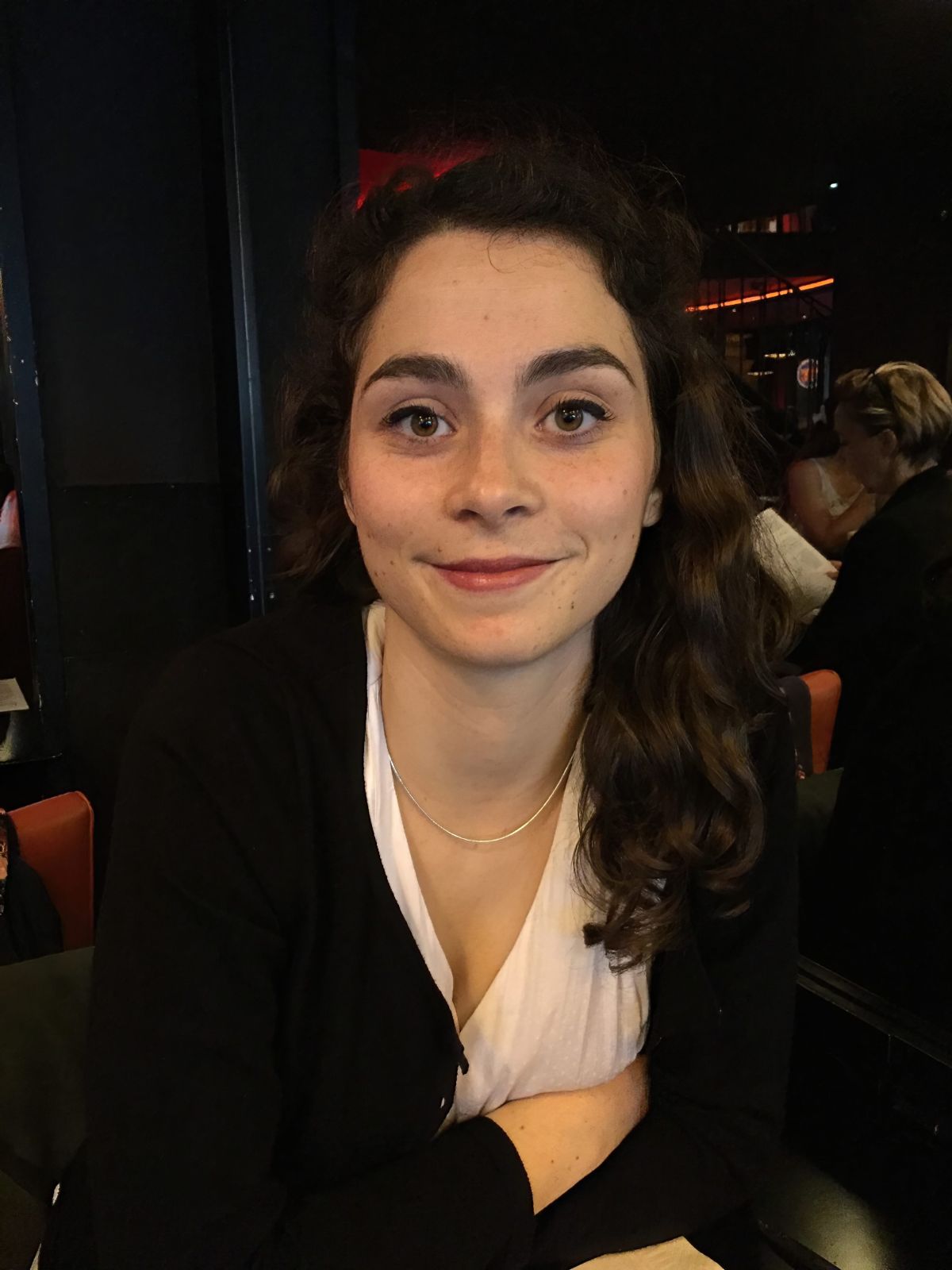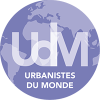Portrait

Léa Loubier - STU, 2015 - A path focused on housing policies and access to housing
Published on | Alumni Portraits
Portrait created by Lise Patron
To begin with, could you give us a brief overview of your background and the reasons that led you to the STU master’s programme?
After finishing my A-levels, I studied at Sciences Po's Undergraduate College, on the Paris campus, before completing my 3A at the University of Copenhagen. I then chose the STU Master because it allowed me to explore public policies at the local level. At that time, I was convinced that this was where one could make a difference and improve the situation for the benefit of citizens. I was also particularly interested in the collective project and the internship, as they added a very professional dimension to the master’s programme.
You mention your collective project: where did you carry it out and what did you do there?
I carried out my collective project for the Agence Nouvelle des Solidarités Actives (ANSA), which is an association functioning quite similarly to a consulting firm. Our group of four students was tasked with analysing the strategies implemented by the Departmental Councils regarding social action, particularly in a context of decreasing state funding and rising expenditures. We developed a typology of the strategies employed by the Departmental Councils based on their mandatory expenditures and the optional measures they sometimes implement, in order to compare their approaches to adapting within the constrained context they faced. From quantitative interviews and a qualitative survey, we drafted a study report and around twenty action proposals for ANSA to enhance its service offerings to the local authorities responsible for social action.
And after that? How did you find your internship, where did you conduct it, and what did you do there?
Following this experience with the collective project and my two years in the master's programme, I wanted to work on education-related policies in a broad sense. While discussing this with my fellow classmates, two of them mentioned my aspirations to a former STU member during a networking session. This professional, who was working for the consulting firm Plein Sens, then got in touch with me and offered an internship tailored to my interests. The role involved participating in the firm's activities related to higher education and research, specifically to enhance the company’s expertise on that subject. Over six months, I conducted a lot of documentary research, drafted issue notes, and contributed to bids in order to develop the firm’s position and strategy on these matters. I also provided support to consultants working with universities (particularly their presidential teams) who sought our expertise to define their institutional strategies (decision-making assistance). Although higher education policies are not extensively addressed within the STU Master, I relied on my solid knowledge of local authorities, which have governance models quite similar to those of universities, and the transition went smoothly. This also allowed me to acquire a somewhat "original" expertise for a STU, while also discovering activities within the consulting and research sector.
And after the Grand Oral, what did you do?
After the Grand Oral, I spent about six months searching for a job. During this time, I conducted interviews with former STU members, particularly to clarify my career project and seek advice from them (e.g., how to negotiate a salary). Indeed, despite the benefits of the collective project and the internship, I still struggled to pinpoint the areas and structures where I wanted to work. I wanted to continue engaging with higher education to bolster my legitimacy on this specific topic, and I notably submitted several spontaneous applications to major metropolitan areas active on this issue, particularly concerning economic development challenges. Being from Paris, I contemplated leaving the city at that time, and I was ready for it. In my opinion, it’s crucial to consider this question, as one must be prepared, even though many excellent opportunities exist outside the Île-de-France region! After several interviews, I secured a position as a Research Officer in the Development Department of the University of Paris-Est Créteil in January 2016. Within this administrative and political service, I was responsible for producing decision-support tools (arbitration notes, arguments and recommendations, studies...), responding to project calls, and contemplating the strategic positioning of one of the universities in the Île-de-France region. I was able to develop project management skills by supporting the governance and coordination of the institution’s strategic projects. A few months after my hiring, the university's presidency changed, which called into question the objectives and targets previously established. Due to a lack of interesting assignments, I decided to change jobs... In my job search, I prioritised a role that was engaging with varied and stimulating activities, rather than one focused on a specific theme.
And today?
Thanks to a job advertisement posted on the Interministerial Public Employment Exchange (BIEP), I found my current position in December 2016 at the Interministerial Delegation for Housing and Access to Housing (Dihal). This is a service of the Prime Minister, functionally attached to the Ministry of Territorial Cohesion and Relations with Local Authorities. I find it an interesting structure to work in. It is an entity of central state administration, but with a much more flexible operation: it comprises a team of around thirty people, and the hierarchical structure is not very pronounced. In my role, I am responsible for implementing cross-cutting policies to improve housing and access to housing for homeless individuals. We work with numerous partners (central administrations, decentralised state services, local authorities, associations, social landlords…). Personally, I am the project manager for Housing within the Housing and Access to Housing department, on a three-year fixed-term contract that can be renewed once. I specifically oversee the management and monitoring of the Plan to Reduce Hotel Stays, the Programme for Humanising Shelters, the development of innovative support practices such as peer support, and issues concerning the participation of housed and supported individuals. I am also responsible for the development, monitoring, territorialisation, and implementation of the Five-Year Plan for Housing First and the fight against homelessness. My daily tasks involve organising and leading working meetings and steering committees, drafting various notes, particularly arbitration notes, conducting monitoring and strategic foresight activities in the field, collaborating with a wide range of partners, participating in regulatory and legislative activities on the subject, animating a network of local authorities (writing newsletters and an extranet, maintaining regular exchanges with the technical services of local authorities, facilitating exchange days between territories...), and modelling and reflecting on improving housing access policies for homeless individuals.
The policy on access to housing for homeless individuals is at the heart of your job: could you tell us more about it?
Indeed, following Emmanuel Macron's election, there was a desire to reform the sector of housing and access for homeless individuals, which led my team to develop and implement a Housing First Plan. We therefore conducted extensive consultation with stakeholders in the sector and subsequently drafted, alongside other administrations, the 60 measures of this plan that we are now working to implement. We also chose to territorialise this policy so that it is not top-down and involves local authorities: we are working particularly with 23 local authorities that are willing and committed as part of a Call for Expressions of Interest.
How do you envision your future career?
Currently, I am considering taking administrative exams (INET, ENA, hospital and prison administration). I will soon have the opportunity to take them as an internal candidate (after 4 years in public service). Consequently, in public service, the status of a contractual employee quickly becomes a hindrance to career progression. I had previously thought about the opportunity of taking the exams right after the STU Master's programme. Although it is true that taking exams while already in the workforce is somewhat more complicated, I believe I am now more determined to do so because I know that working in public service is appealing to me. For now, I remain with Dihal!
What has the STU master's programme given you?
What I take away from the STU master’s is primarily a very positive collective atmosphere, which is important given the numerous group projects we have to undertake. I greatly appreciated working with people who had very different backgrounds and opinions from my own. I believe that the master also provides us with a strong understanding of local-level culture and in-depth knowledge of stakeholder dynamics that are highly valued later on. Generally speaking, at Sciences Po, we learn to analyse and think quickly and to adapt swiftly to a wide range of subjects, skills that are very important for the future.
Finally, do you have any advice for current students?
We spend a significant part of our lives at work: it is therefore essential to choose a stimulating position that aligns with our values! For students who have just graduated, I would say that you should not underestimate yourselves during the job search: you learn very quickly, and by doing!
Follow your intuitions, your convictions, and your desires!
Marion Waller - GLM 2014 - General Director of the Pavillon de l'Arsenal
Published on 20 October 2023
Hello Marion, could you first tell us about your university background and the motivations that led you to the GLM Master's programme? I initially pursued a…
Fanny Coulombié - STU - from Agro Paris Tech to Sciences Po
Published on 14 December 2018
From Agro Paris Tech to Sciences Po: A Journey Focused on Sustainable Planning and Health-Favourable Urbanism Hello Fanny, to start with, could you give us a…
 English
English  Français
Français 




